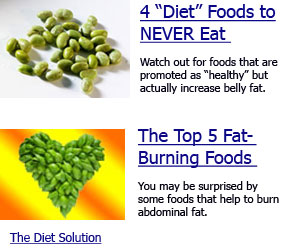Eliminate Bad Breath Causes and Use Natural Remedies for Fresher Breath
Wednesday, June 02, 2010 by: Tony Isaacs, citizen journalistSee all articles by this author
Email this author

|
An improper diet can lead to stomach problems and a deficiency in good intestinal flora which can cause bad breath. The best diet to help prevent bad breath is one consisting of seeds, nuts, grains, vegetables, and fruits, with emphasis on raw and cooked vegetables, and fruits. Take steps to eliminate constipation when present and avoid refined carbohydrate foods, such as white sugar, and bleached white flour.
Coffee, beer, wine and whiskey are at the top of the list of liquid offenders. Each leaves a residue that can attach to the plaque in your mouth and infiltrate your digestive system. Each breath you take spews traces back into the air.
Certain foods, such as garlic, onions, strong cheeses and certain spices are frequently cited as causes for a person's bad breath. Since some of these same foods may have significant health benefits, rinsing and brushing immediately after eating and using other remedies for bad breath may be preferable to eliminating the food items.
Dental problems, especially gum disease and tooth abscesses, are often the cause of bad breath. Practice good oral hygiene to keep the mouth, tongue, teeth, and gums clean and healthy. Brush and floss your teeth regularly and clean your gums to remove bacterial buildup. Including baking soda (sodium bicarbonate) in cleansing can greatly help eliminate bad breath. Use a tongue scraper to help get rid of bacteria on the tongue which may cause bad breath. Rinse thoroughly after cleansing as well as after any meal or snack.
For healthy natural tooth cleansers you can make at home, see:
www.naturalnews.com/028636_toothpas...
Avoid stress, which can affect the digestive system and lead to bad breath. Also, supplement as needed to avoid deficiencies in vitamin B, Vitamin C, Zinc and digestive enzymes - all of which can also lead to bad breath.
Following are some effective natural remedies for bad breath:
Parsley may be the king of natural breath fresheners. Parsley is rich in chlorophyll, a green plant compound that kills bacteria that cause odor. Nibble on a sprig or chew some leaves after eating foods that may cause sour breath.
Put a few drops of tea tree oil on your toothbrush along with your toothpaste and/or put just enough in your un-waxed dental floss container to coat all the dental floss.
Make a mouthwash from equal parts of extracts of sage, calendula, and myrrh and gargle four times daily with the mixture. Keep the mouthwash in a tightly sealed jar.
Chewing unripe guava or guava leaves is an excellent tonic for the teeth and gums. Guava is rich in tannic, malic, oxalic, and phosphoric acids as well as calcium, oxalate, and manganese.
Cardamom seeds or fenugreek seeds can both help sweeten your breath. Both may either be chewed or made into teas.
Avocado is another effective remedy for bad breath. It helps eliminate intestinal putrefaction which can lead to bad breath.
Notes:
Do not use lemon juice unless you rinse thoroughly afterwards - otherwise you may end up damaging your enamel.
Milk intolerance often is the cause of bad breath. If you suspect milk intolerance, eliminate all dairy products to see if it makes a difference.
Sources included:
http://www.health911.com/remedies/r...
www.susangaer.com/studentprojects/b...
http://www.home-remedies-for-you.co...
http://health.msn.com/health-topics...
http://www.tbyil.com/Bad_Breath.htm
Reposted From NaturalNews





